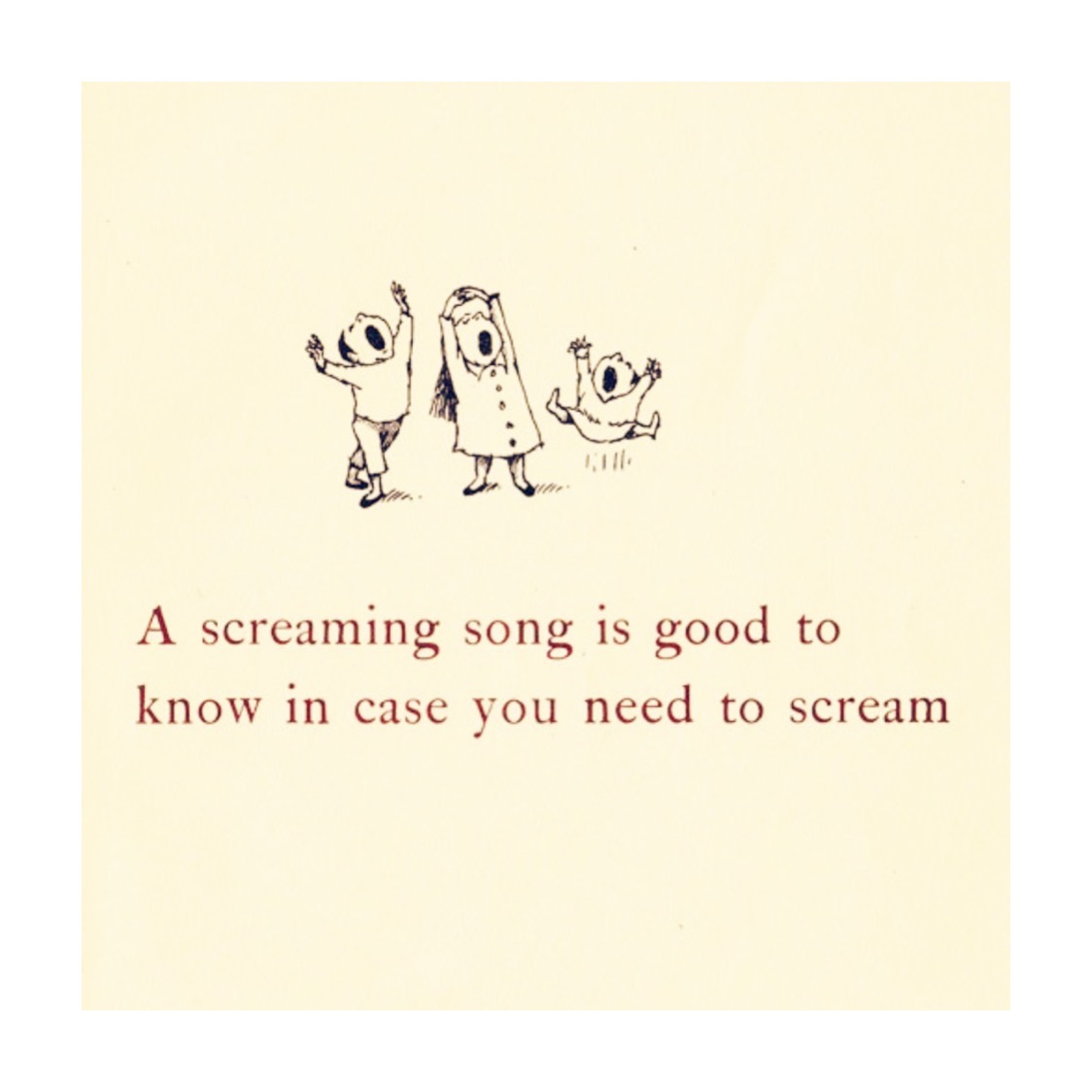📿 Five Ways to Cope with Election Stress
Riding the waves of uncertainty leading up to November 5th
“Maybe,” I thought to myself the other day, “the best thing to do right now is Google election polling information.”
So I did. And I quickly noticed the waves of uncertainty arise in me. After the 2016 election cycle, I’ve lost some faith in pollsters, and yet I gravitate towards looking at the numbers each day. Why? There is an all too familiar desire to find something (anything) definitive to hang my proverbial hat on so that I might confirm that things will go one way or another next week.
We humans are pretty good at two of the following things:
reveling in it when things are going well
army-crawling through it when things are going poorly
being okay in the midst of uncertainty
Have you figured out which one we’re not so good at?
I know a lot of people who throw their meditation practice out the window when things are going well. Who needs to manage their emotions when all the emotions are positive? Let them run rampant, right? Then, when their circumstances change, they find themselves glued to the cushion, feeling like they have lost the habit of meditating and trying to regain some form of equanimity in the midst of whatever change of circumstances has arisen.
The second thing we humans are pretty good at is managing to get through tough times. Right now my whole family has COVID. None of us are sleeping well. Other family members and loved ones are going through their own misfortunes and we’re trying to hold space for them. And yet, I’m confident we will be fine long-term.
Maybe you feel the same way, that as you meditate the ability to accommodate some of the suffering that arises as part of life increases. By and large I see many of us continuing to add to our plate of suffering and adjusting to carry whatever pains life throws at us. These could be physical pains, emotional pains, or even societal ones.
As my father’s dentist used to say, “There can’t be a hell, because you get used to anything in three days.”
Which brings me to the thing that we humans are not so good at: not knowing.
We can be happy when things go our way or adjust our lifestyle to accommodate bad times but not knowing? That is the thing we absolutely do not do well with.
I remember when we were preparing for Ruby’s birth and took a class on what to expect when you’re expecting (not actually the title). The class detailed signs of labor coming on, how to make a birth plan and more. There was one woman in the class who did not feel like she got enough information. She kept asking question after question until the teacher finally had to say, “The best we can do is prepare ourselves and then go with the flow of whatever arises.”
I had never seen anyone more angry and frightened. This was someone who clearly was used to planning every detail of every event in her life and the fact that there was this massive thing - giving birth to her child - that had so many unknowable, unplannable aspects to it was too much for her. I can certainly sympathize.
In many ways, the American Buddhist nun Pema Chodron made a career out of telling us that things are unknowable and unplannable. I joke that every book she has written is some variation of Things Are Uncertain: It Sucks, Sorry (also not an actual title, although Comfortable with Uncertainty comes close and is my favorite recommendation from her).
Based on her teachings and many others I have studied over the years, here are the top five meditation practices I work with when encountering uncertainty, which particularly feel applicable to this election cycle.

1. Take 30 Seconds to Cut Through the Story
Just now I moved to interrupt my writing process by checking the polls (“How’s Pennsylvania looking?”). Instead, I paused and refrained.
Because we are living in uncertain times and not a lot of answers are available to us, we need to learn to get comfortable with the discomfort of not knowing.
The brain is a problem-solving device so in our current election cycle it will constantly seek answers for all of the uncertainty surrounding us. It will look at polling info and count yard signs in our neighborhood and strategize about what will occur on November 5th. Because there are no easy or set answers, we could throw a lot of mental energy down the rabbit hole of "What if this happens" instead of bringing it to what is currently happening.
For me, I find this is a time to ground down. When stories of “What if” arise, I remember to take a breath.
Disclaimer: this technique is not going to unearth the root causes of your anxiety and transform them! It will, however, help you drop the storyline that is currently plaguing you and come back into the present moment with a bit of a “fresh start” mentality.
My go-to (and feel free to borrow it if you find it helpful) is to take three deep breaths - in through the nose then exhale out through the mouth. That’s it. Simple, right? Yet over the years I have found that when I get heavily triggered, this short gap of taking these three breaths is long enough for me to focus without distraction on something other than the story I’m telling myself.
2. Is This Helpful?
Back when I struggled more intensely with anxiety (pre-Take Back Your Mind; writing that book was transformative for me) I would at times catch myself playing out the same story over and over again and would interrupt my process by asking, "Is this helpful?"
The first time we read the news in the morning, yeah, that seems helpful. It’s good to stay informed. The fiftieth time we are refreshing the browser on our news story of choice we might want to ask ourselves that simple question, or its alternative, “Is this useful?”
Once you acknowledge that a given story that you're telling yourself isn’t helping, it’s a lot easier to let it go and come back into your present experience.
3. It’s Okay to Feel This
When you encounter strong emotions remember: it’s okay to feel this. Often when we feel strong emotions like fear and anxiety the main thing we want is for them to go away. It’s like you are being followed by a persistent toddler, who keeps asking you “Why?”
“Why do you think you can relax? There's an election happening."
"Why do you think things will be okay? The race is neck and neck.”
Yet we keep trying to pick up the pace in the hopes of escaping the toddler. My suggestion is to turn around and look directly at the toddler. Hear what he is saying. See if there is any truth to it.
Simply hang out in a non-judgmental way with the toddler for a moment and, like an actual young child, he will likely calm down. Joseph Goldstein, co-founder of the Insight Meditation Society, once gave a talk where he encouraged students to note when emotions come up and simply say to yourself, “It’s okay to feel this.”
I found that simple term so revolutionary. It’s not “It’s time for you to go away, emotions” or even what we often do which is, “I need to fix or change you, emotions.” It’s “It’s okay to feel this.”
4. What Can I Enjoy Right Now?
When you feel a sense of foreboding, you might find it helpful to ask, "What can I enjoy right now?"
When I am able to get out of my head and relax into the present moment I find myself experiencing a simple form of contentment. When we meditate regularly we have the chance to take very ordinary things, such as drinking a glass of water, and make them extraordinary.
The extra part is that we are infusing the basic experience with our presence. We are there for the the taste of the water and feel how cool and refreshing it can be. Somehow this thing that we do all the time now feels somewhat magical. The more you meditate regularly, the more you may be able to apply this question when you feel a bit lost in anxiety: “What can I enjoy right now?”
This question brings us into the present moment long enough to acknowledge our surroundings. Perhaps it's warm in the room and that feels nice. Maybe the rain hitting the window sounds soothing. Perhaps you realize that the fact that you are able to move your body, or see or hear, is sort of miraculous. You can enjoy any of those things if you gently invite yourself into this very moment.
5. F-ing Meditate, My Friend
Mindfulness meditation is something that has helped people deal with uncertainty for thousands of years. By grounding down with the breath and feeling into our bodies, we learn we don’t have to get knocked over by the news of the day. We can remain equanimous.
The shortest instruction would be to take a relaxed but uplifted posture, connect to the natural feeling of your body breathing, noticing the in-breath and out-breath. When you get distracted by thoughts, come back to the breath. If it's helpful you can even silently and very gently say to yourself, "Thinking" to acknowledge when you drifted off and come back to the present moment. Even starting at 10 minutes a day of mindfulness of the breath can transform your life. I’ll go ahead and drop a link to my library of over 100 guided meditations below the pay wall as a thank you to our paid subscribers.
To state the obvious, anxiety does not live in the present moment. It’s future-based thinking. The more we meditate, the less of a hold anxiety has on us. When we are less focused on the “What ifs” we are more available to bodhichitta, our own tender and vulnerable heart.
Things will continue to be uncertain; that is a part of life. How we choose to ride the waves of uncertainty though is up to us.
Keep reading with a 7-day free trial
Subscribe to The Laundry to keep reading this post and get 7 days of free access to the full post archives.








